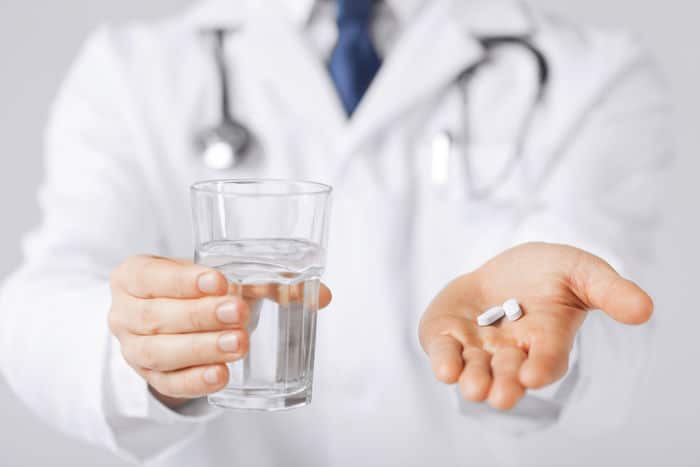Do I need antibiotics?
You know the feeling, at this time of year, when you’re feeling rotten with a cough or cold, you’ll do anything to make yourself feel better and that sometimes leads to asking the doctor for antibiotics when in fact they might not help.
Antibiotics are essential in treating serious bacterial infections such as meningitis, pneumonia and sepsis, however because colds and flus are viral, not bacterial infections, antibiotics won’t work.
It is easy to get confused between a virus and a bacterial infection but one crucial thing to know is that if you’re suffering with a viral illness, such as a cold, then antibiotics won’t treat it.
Get a free £10 bonus with Swagbucks
Earn a bit of extra money in your spare time with surveys, videos, and simple tasks you can do at home.
New users can get a £10 bonus when they sign up.
Get the £10 bonus
If your doctor has not prescribed you antibiotics there are loads of other free and cheap ways you can treat your cough or cold and manage the symptoms and feel better.
Written in collaboration with Public Health England for the
Keep Antibiotics Working campaign
It starts off as a niggle. You’re not quite sure what it is, but your ears feel slightly blocked, your head hurts, and you start sneezing.
Yep – you’re got a virus coming!
If you’ve got a common cold, cough or sore throat, instead of sitting around feeling sorry for yourself, there are things you can do for free, or mega cheap, to get yourself back on the path to feeling well.
If you don’t need antibiotics
It can be hard to know if your illness is a virus or not so if you are feeling unsure than you should always visit a GP or pharmacist who can take a look at your symptoms and recommend the best course of action.
If you don’t need antibiotics for your cold or cough, then don’t take them as these illnesses can usually get better by themselves or through self-care.
There are very simple things you can do to make yourself feel better and be up and raring to go.
How to treat your infection
There is no magical, instant cure for the common cold, but luckily your immune system can clear up the virus on its own.
There are plenty of ways you can help to manage the symptoms of your infection to make you feel better.
Get some R&R
It’s easy to say to get some rest when you’ve got work, or kids running around the house, but you’re not going to be doing anyone any favours if your head is foggy, and it takes you twice as long to do basic tasks.
While you may not be able to stop daytime activities, look to get some rest, have a few early nights and catch up on some zzzs.
Keep up the fluids
You want to drink plenty of fluids – aim to drink around 6 to 8 glasses – to put back what you’ve lost from your runny nose. However, you don’t just need water to keep hydrated.
One of my favourite things is hot honey and lemon, which makes my throat hurt less.
Simply add one tablespoon of lemon juice (or about half a squeezed lemon) in a mug with two teaspoons of honey and mix with boiled water.
This drink works just as well as cold and flu sachet and can help with congestion.
Talk to your pharmacist
Instead of booking an appointment with your GP, your local pharmacist is there to offer free guidance and support.
Many pharmacies in larger stores or supermarkets are open late into the evening which gives you more flexibility if you work in the day.
The pharmacist will be able to recommend medicines to help relieve your symptoms.
Painkillers
Instead of getting a prescription from the doctor, you can take over the counter medicines like paracetamol, ibuprofen or aspirin to reduce to the symptoms of a cold.
These medicines can reduce a high temperature and help with headaches, or a sore throat.
You don’t need to overspend when it comes to medicines as some expensive brands have exactly the same pills as the generic store own ones.
Look for the “PL number” on the packet, which is a unique code given to the drug manufacturer.
The medicines may have different packaging (and some are more expensive), but they are made by the same company and have exactly the same medicine inside – so save your cash.
Don’t spread it
If you’re got a virus right now, then preventing it is too late. However, you can help to prevent others from getting your bug and avoid catching germs again in the future.
- Use tissues to catch your sneeze or cough and bin them
- Wash your hands regularly with soap and water as viruses can be spread by touching
- Clean places that get touched frequently like door handles, taps, toilet flushers and even things like your computer mouse or TV remote
- Don’t share mugs, glasses, straws, towels and flannels with someone who has a cold
Germs can live for up to 24 hours on other surfaces so just keep up general common-sense cleaning to help prevent the spread of infection.
Get the flu vaccine
Avoid suffering from the flu this winter by going to get your flu vaccine, especially if you can receive it for free. Those who are eligible for the free flu vaccine are those aged 65 and over, people with underlying health conditions, health and social care workers, children aged 2-3, primary school children, and pregnant women.
You can get your flu vaccine from your registered GP surgery, pharmacist, some midwifery services and if you have a primary school child then they can receive it at their school. One big myth buster is that you can’t get the flu from having the flu vaccine so there’s no excuse!
Here’s the current flu jab cost and how you can get one for free
When to get medical help
While these tips may help you if you’ve got a cold or virus, you may need to go to a pharmacist or doctor if your symptoms don’t improve or get suddenly worse.
Just be sure to help prevent antibiotic resistance and always take your doctor’s advice on antibiotics.
Take a look at the NHS site for full details on the common cold.
What to not do for a virus
When you’ve got a viral infection like a cold or cough, you don’t need to take antibiotics.
GPs don’t prescribe antibiotics for viruses as they won’t make you better and don’t actually treat viruses.
Taking them unnecessarily encourages bacteria that live inside you to become resistant. This means that antibiotics may not work when you need them next time.
Antibiotics are essential to treat serious bacterial infections, such as meningitis, pneumonia and sepsis, but they are frequently being used when not necessary to treat illnesses, such as coughs, colds and sore throats, that can get better by themselves.
To help prevent antibiotic resistance, antibiotics should only be taken as prescribed, and never saved for later use or shared with others.
Antibiotics are not always the most appropriate course of treatment and are only effective against bacteria and not viruses – and most coughs and colds are viral.
:: If you’re suffering with a cold or virus, I do hope you feel better soon.
Saved a few quid with our tips?
If Skint Dad has helped you spend less or feel more in control of your money, you can support the site with a small contribution.
- I was sent a fake HMRC tax notice. Here’s how to spot the scam - 8 January 2026
- A once-a-year money check most families forget (with rough savings) - 6 January 2026
- The January bills reality check: the traffic light method that works - 1 January 2026





